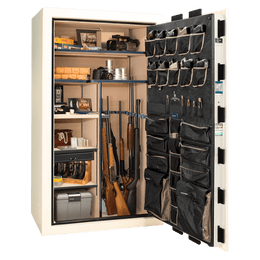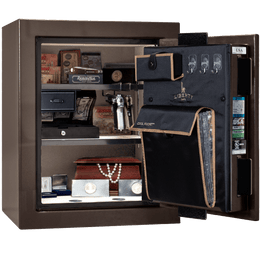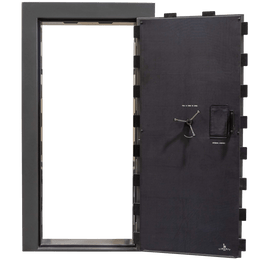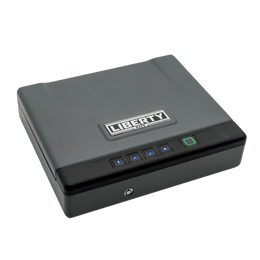These days a firearm for home defense is a better idea than ever. But which gun should you select? Is a shotgun a good choice? If so, what TYPE of shotgun is the best choice? In this article we’ll go over some key points of consideration to help you decide if a shotgun is the right home-defense choice for you in your situation.
Are shotguns good for home defense?
The short answer, as with most questions related to firearms for defensive use, is, “It depends.” A shotgun as a tool for delivering “manstopping” power in a defensive situation can be very effective. However, there are other considerations that we need to discuss, that may help you decide whether a shotgun is the right choice for you.
Ease of use: is a shotgun a good choice for home defense?
When discussing shotguns as defensive tools, it’s important to discuss whether they are generally easy to use compared to common defensive handguns or rifles.
It’s a common misconception that a pump-action shotgun is “the most reliable” and “easiest to use” of all shotgun action types. While those of us who have been trained and are well-practiced in the use of a slide- or pump-action shotgun may find their controls and mechanism of action intuitive and easy to use, a new shooter would likely find them very confusing and difficult to use reliably, particularly the concept of the action unlocking lever or button (this is variously called the “action bar lock,” the “action lock lever,” the “action release,” and other terms, depending on the manufacturer of the shotgun).
No other type of repeating firearm has a similar mechanism, and the improper use of or unfamiliarity with the action unlocking mechanism can result in a dangerous situation (where the shotgun can’t be unloaded safely, or an unfamiliar user might try to pull the trigger to unlock the action).
Furthermore, the slide/forend of a pump-action shotgun must be retracted and returned forward vigorously in order for the shotgun to feed and eject cartridges reliably. Smaller-statured, weaker, or unfamiliar shooters often find that they “short-stroke” or “short-shuck” pump action shotguns, particularly under stress, resulting in feed jams or empty chambers.
As with any firearm, it’s important that every user be trained and well-practiced in its use, in order to be safe and effective. A break-action shotgun or a semi-automatic shotgun might be a better choice for a user who doesn’t practice often, since these shotguns’ controls and function are a little less demanding on the inexperienced or infrequent shooter.
What kind of ammunition is good for a defensive shotgun?
We’ll have a complete article on this topic elsewhere on this site, but we’ll touch on the main points briefly here as well: a defensive shotgun is only as good as the ammunition you use.
Many knowledgeable people will recommend against the use of birdshot in a defensive use scenario, but there may be some situations where it might be effective, particularly if larger shot pellet size (between BB and around #5 shot) is used, and distances are close.
Birdshot, despite its lack of penetration compared to buckshot or slugs, has the advantage of rapid energy disbursement as it comes into contact with walls or other common home construction materials. So, if over-penetration or the safety of innocent bystanders and family members is your chief concern, then birdshot might be the right choice for you.
However, it can’t be denied that a proper defensive load of buckshot or slug rounds will be much more effective at stopping a lethal threat than birdshot. But again, those loads that produce greater penetration and effectiveness on a man-sized threat also have a greater risk of passing through more sheets of drywall and other household materials, thus there is potentially more risk of mistakenly harming bystanders than when using birdshot.
In the end, when it comes time to choose the right load for your defensive shotgun, you are the only person who can make that choice for your unique situation.
For more details on making the right choice of ammunition for home defense, see our article “Which shotgun shells for home defense?”
Do I have to aim a home-defense shotgun?
In short, the answer is “Yes!” It’s a common misconception that a shotgun is a magical death machine that delivers a wide swath of destruction to anything forward of the muzzle. In reality, even when shooting an open-choke/cylinder bore shotgun at typical home defense distances, the pattern (or spread of the projectiles) might only be the size of a softball or small paper plate.
In other words, it is easy to miss a target with a defensive shotgun at typical defensive distances, particularly if you don’t get a good sight picture.
This might seem disheartening, but it’s actually a good thing. If you need to use a firearm in a defensive situation, you want to actually hit what you’re aiming at (and again, you do have to aim your shotgun when using it defensively). In fact, many defensive buckshot loads have a “flite-control” type wad that is specifically designed to keep your shot pellets in a tighter, denser pattern for greater accuracy and effectiveness at greater distances.
This means that when you aim your defensive shotgun, the chances are good that ALL of the projectiles will hit the intended target, which means effective stopping power against the “bad guy” and minimal risk to any “good guys” in the home.
So, it’s important to pattern YOUR shotgun with YOUR choice of ammunition at various distances, to see how and where it patterns. Pace out the longest possible distance within your home and set that as your maximum, and see where your shotgun shoots and how tight the pattern is at that distance, and practice using it. It’s the only way to know how your shotgun can be expected to perform.
Legal considerations of shotguns for home defense
Due to local and state regulations in some areas, a shotgun might be your ONLY choice for a defensive shotgun. Even people like Joe Biden have publicly recommended a double-barrel shotgun as an acceptable choice of firearm to defend your home and family. Many locales have severe restrictions on what types of firearms you may possess, and a handgun or rifle might not even be one of your options.
However, since shotguns are typically very reliable when used properly, and are very effective at delivering a devastating payload into the intended target, a shotgun might not just be your only choice as a defensive firearm… it might actually be the best choice.
Whatever firearm you choose for home defense, keep it safe with Liberty
Liberty Safe is America’s #1 manufacturer of home and gun safes, and all our safes are built in America from American steel. If you decide a shotgun is the right choice for your defensive firearm, keep it safe and protected in a quality safe from Liberty. Click here to find a dealer near you!







